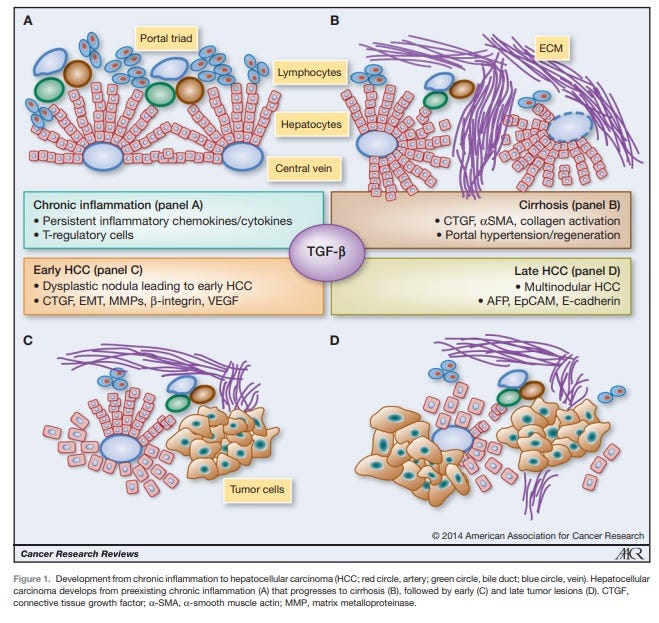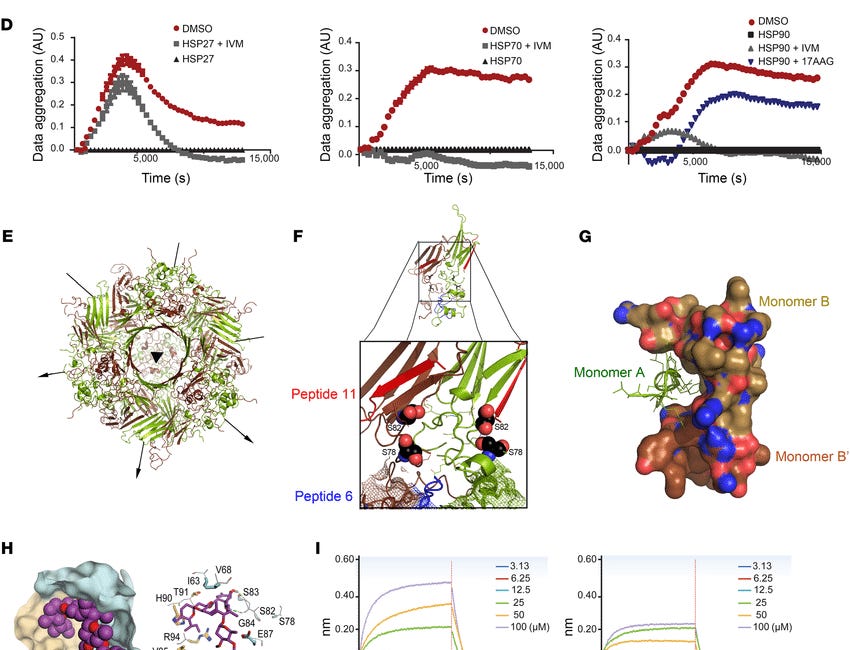by 2nd Smartest Guy in the World, 2nd Smartest Guy in the World:

This Substack has written extensively on the wonders of inexpensive repurposed miracle drugs Ivermectin and Fenbendazole:
The following video shows exactly what happens to parasitic worms when Ivermectin is introduced in vitro:
TRUTH LIVES on at https://sgtreport.tv/
Ivermectin May Defeat Cancer and Other Common Chronic Diseases of Aging
This Substack recently wrote about the powerful anticancer properties of Fenbendazole: I also mentioned in passing that one of reasons Ivermectin was so viciously maligned and suppressed was that if society were taking it to cure PSYOP-19 one of the side effects would be “sudden” plummeting cancer rates, and thus BigPharma et al. went all out to destroy …
PetDazole: Pharmaceutical Grade Pure Fenbendazole
Just like they went after one of the very best cures for PSYOP-19 in Ivermectin… …the Medical Industrial Complex does not want the truth to come out about a powerful cancer cure in Fenbendazole. Thanks to the deployment of the DEATHVAX™, we are now seeing parabolic increases in “turbo cancers.” Those responsible for these slow kill bioweapon injections…
The following video shows exactly what happens to parasitic worms when Ivermectin is introduced in vitro:
We now know that cancer rates are going parabolic:
From Turbo Cancer to Sudden Cardiac Mortality to Excess Non-Covid Natural Cause Mortality: The Never-Ending Adverse Events of the “Vaccinated” & The Global Depopulation Program
Yesterday this Substack reviewed the latest cardiac mortality data: A few days before that, this Substack reviewed the latest cancer data: Today we tie these terrifying trends together by reviewing the latest data on excess non-PSYOP-19 natural cause mortality:
And criminal Medical Industrial Complex is clearly covering up their crimes.

What if the exact same thing occurs when Ivermectin is administered for (turbo) cancers?
According to a research study entitled, Ivermectin, a potential anticancer drug derived from an antiparasitic drug, we have further evidence of the interaction between Ivermectin and cancer:
Ivermectin has powerful antitumor effects, including the inhibition of proliferation, metastasis, and angiogenic activity, in a variety of cancer cells. This may be related to the regulation of multiple signaling pathways by ivermectin through PAK1 kinase. On the other hand, ivermectin promotes programmed cancer cell death, including apoptosis, autophagy and pyroptosis. Ivermectin induces apoptosis and autophagy is mutually regulated. Interestingly, ivermectin can also inhibit tumor stem cells and reverse multidrug resistance and exerts the optimal effect when used in combination with other chemotherapy drugs.
We already knew that Ivermectin cured PSYOP-19 if administered as an early treatment.
IVM not only has strong effects on parasites but also has potential antiviral effects. IVM can inhibit the replication of flavivirus by targeting the NS3 helicase [17]; it also blocks the nuclear transport of viral proteins by acting on α/β-mediated nuclear transport and exerts antiviral activity against the HIV-1 and dengue viruses [18]. Recent studies have also pointed out that it has a promising inhibitory effect on the SARS-CoV-2 virus, which has caused a global outbreak in 2020 [19]. In addition, IVM shows potential for clinical application in asthma [20] and neurological diseases [21]. Recently scientists have discovered that IVM has a strong anticancer effect.
Exactly which kinds of cancers can Ivermectin cure?
Breast cancer:
Recent studies have also found that IVM could promote the death of tumor cells by regulating the tumor microenvironment in breast cancer. Under the stimulation of a tumor microenvironment with a high level of adenosine triphosphate (ATP) outside tumor cells, IVM could enhance the P2 × 4/ P2 × 7/Pannexin-1 mediated release of high mobility group box-1 protein (HMGB1) [37]. However, the release of a large amount of HMGB1 into the extracellular environment will promote immune cell-mediated immunogenic death and inflammatory reactions, which will have an inhibitory effect on the growth of tumor cells. Therefore, we believe that the anticancer effect of IVM is not limited to cytotoxicity, but also involves the regulation of the tumor microenvironment. IVM regulates the tumor microenvironment and mediates immunogenic cell death, which may be a new direction for research exploring anticancer mechanisms in the future.
Digestive system cancer:
Hepatocellular carcinoma is the fourth leading cause of cancer death worldwide. Approximately 80% of cases of liver cancer are caused by hepatitis B virus (HBV) and hepatitis C virus (HCV) infection [42]. IVM could inhibit the development of hepatocellular carcinoma by blocking YAP1 activity in spontaneous liver cancer Mob1b-/- mice [43].Cholangiocarcinoma is a malignant tumor that originates in the bile duct inside and outside the liver. Intuyod’s experiment found that IVM inhibited the proliferation of KKU214 cholangiocarcinoma cells in a dose- and time-dependent manner [44]. IVM halted the cell cycle in S phase and promoted apoptosis. Surprisingly, gemcitabine-resistant KKU214 cells showed high sensitivity to IVM, which suggested that IVM shows potential for the treatment of tumors that are resistant to conventional chemotherapy drugs.
Urinary system cancer:
Prostate cancer is a malignant tumor derived from prostate epithelial cells, and its morbidity is second only to that of lung cancer among men in Western countries [49]. In Nappi’s experiment, it was found that IVM could enhance the drug activity of the anti-androgen drug enzalutamide in the prostate cancer cell line LNCaP and reverse the resistance of the prostate cancer cell line PC3 to docetaxel [50]. Interestingly, IVM also restored the sensitivity of the triple-negative breast cancer to the anti-estrogen drug tamoxifen [36], which also implies the potential for IVM to be used in endocrine therapy. Moreover, IVM was also found to have a good inhibitory effect on the prostate cancer cell line DU145 [51].
Hematological cancer:
It was also proven that IVM has a synergistic effect with cytarabine and daunorubicin on the treatment of leukemia. Wang’s experiment found that IVM could selectively induce mitochondrial dysfunction and oxidative stress, causing chronic myeloid leukemia K562 cells to undergo increased caspase-dependent apoptosis compared with normal bone marrow cells [53]. It was also confirmed that IVM inhibited tumor growth in a dose-dependent manner, and dasatinib had improved efficacy.
Reproductive system cancer:
Ovarian cancer is a malignant cancer that lacks early clinical symptoms and has a poor therapeutic response. The 5-year survival rate after diagnosis is approximately 47% [27,57]. In a study by Hashimoto, it found that IVM inhibited the proliferation of various ovarian cancer cell lines, and the mechanism was related to the inhibition of PAK1 kinase [58]. In research to screen potential targets for the treatment of ovarian cancer through the use of an shRNA library and a CRISPR/Cas9 library, the oncogene KPNB1 was detected. IVM could block the cell cycle and induce cell apoptosis through a KPNB1-dependent mechanism in ovarian cancer [59]. Interestingly, IVM and paclitaxel have a synergistic effect on ovarian cancer, and combined treatment in in vivo experiments almost completely inhibited tumor growth. Furthermore, according to a report by Zhang, IVM can enhance the efficacy of cisplatin to improve the treatment of epithelial ovarian cancer, and the mechanism is related to the inhibition of the Akt/mTOR pathway [60].
Respiratory system cancer:
Lung cancer has the highest morbidity and mortality among cancers [70]. Nishio found that IVM could significantly inhibit the proliferation of H1299 lung cancer cells by inhibiting YAP1 activity [43]. Nappi’s experiment also proved that IVM combined with erlotinib to achieved a synergistic killing effect by regulating EGFR activity and in HCC827 lung cancer cells [50]. In addition, IVM could reduce the metastasis of lung cancer cells by inhibiting EMT.
Read More @ 2ndSmartestGuyintheWorld.com






